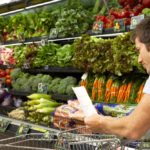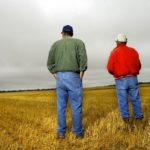
Tag Archives consumers

‘You’re wrong’ is the wrong message
Trying to dictate what products consumers should get or what food companies should supply them is surely a losing tactic
Editorial: Consumer divorce

Developing a Canadian food advantage
Farmers and the industry need to actually demonstrate that their products are produced sustainably

Canadian farmers can’t ignore public engagement
More than 93 per cent of Canadians admit to knowing little or nothing about how their food is produced
Editorial: A fine balance

Social licence – where do I buy one?
More consumers are becoming concerned about the origins of their stuff

The ultimate consumers’ choice award
Significant change is needed throughout the sector to secure Canada’s future global competitiveness
Consumers trust farmers — but not farming

Butter back in consumers’ good books
Once the bad boy of foods, butter is regaining its place at the table as consumers look to richer tastes

Attitudes toward food — bridging the rural-urban divide
A group of industry panellists says a lack of food literacy in urban centres and an overload of misguided information is furthering the gap between rural and urban residents


